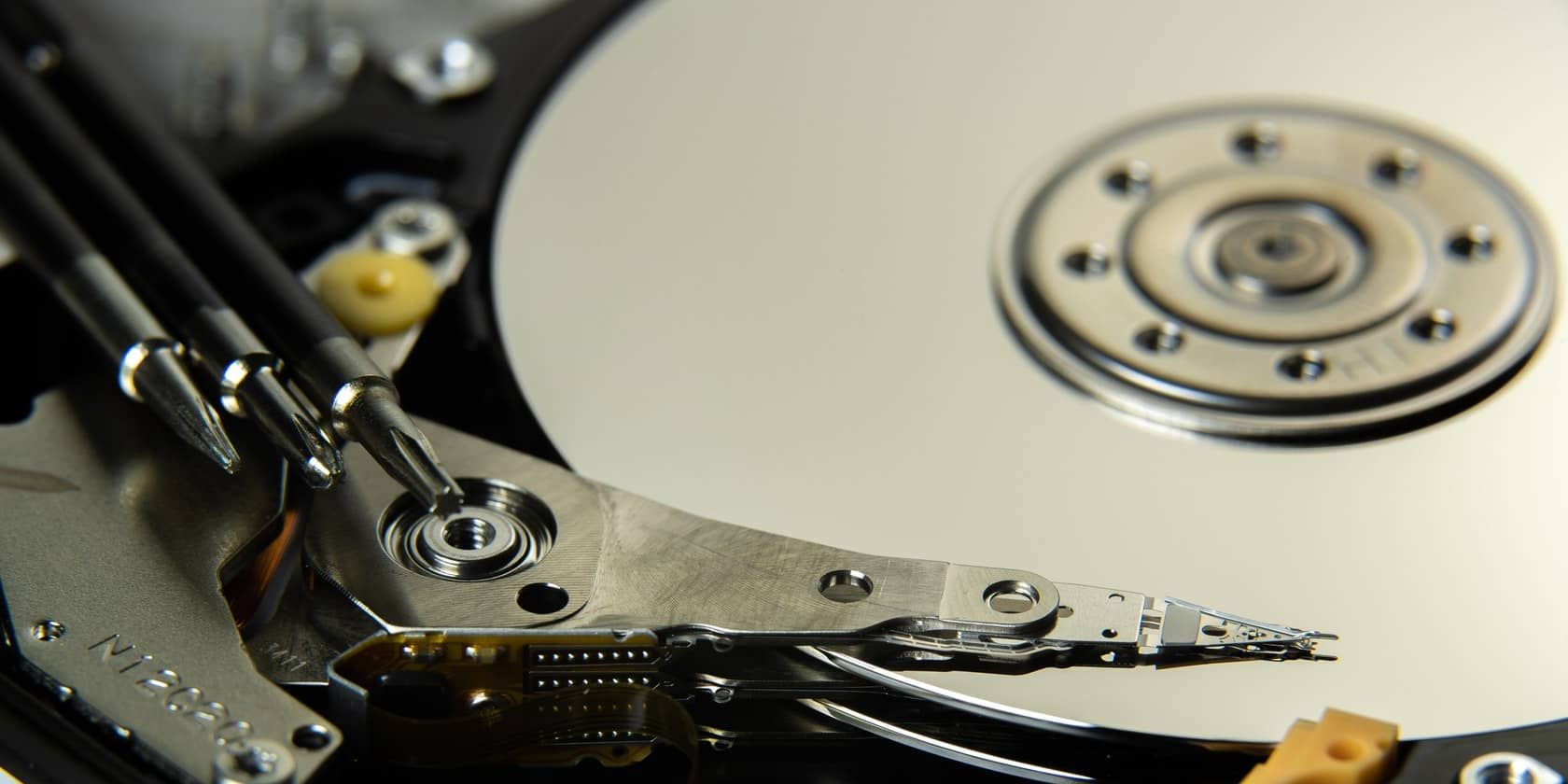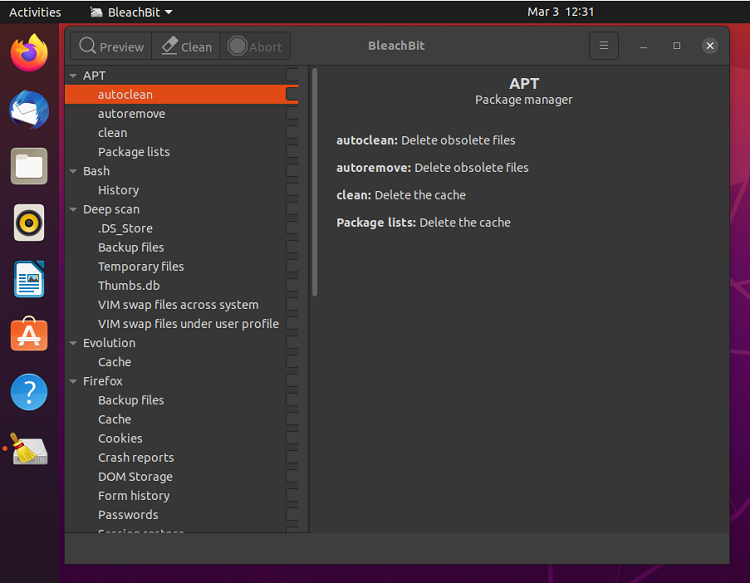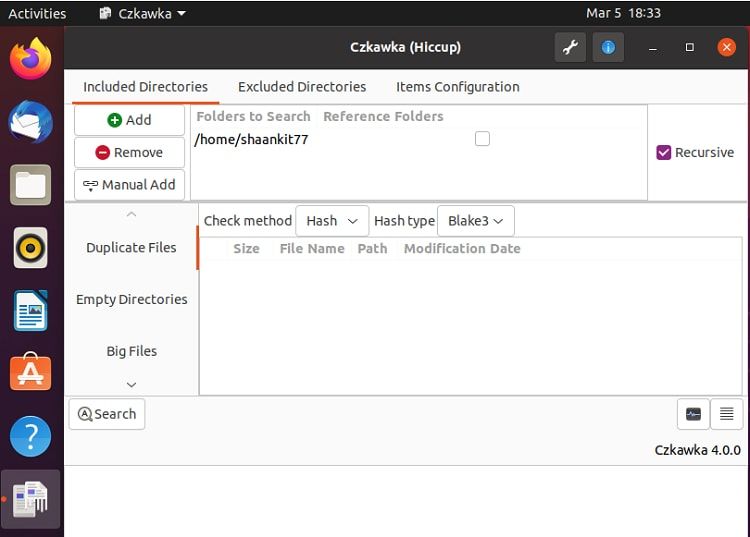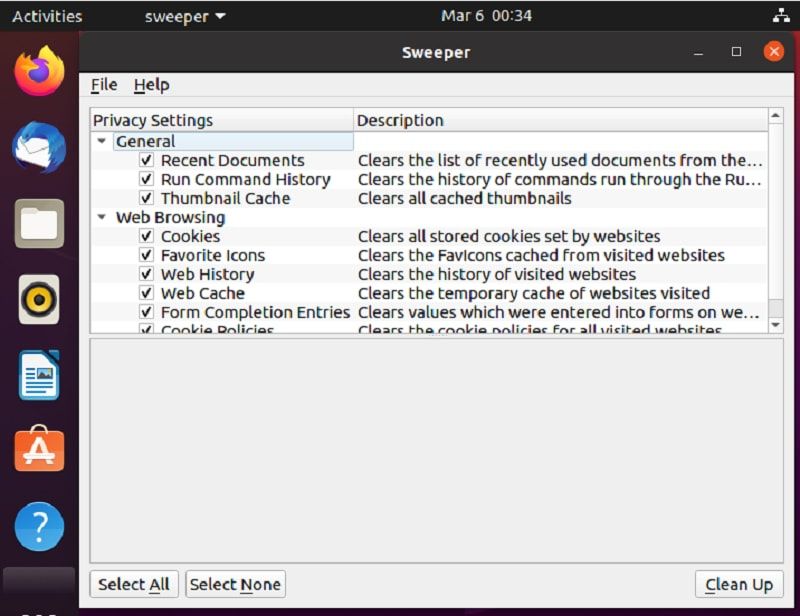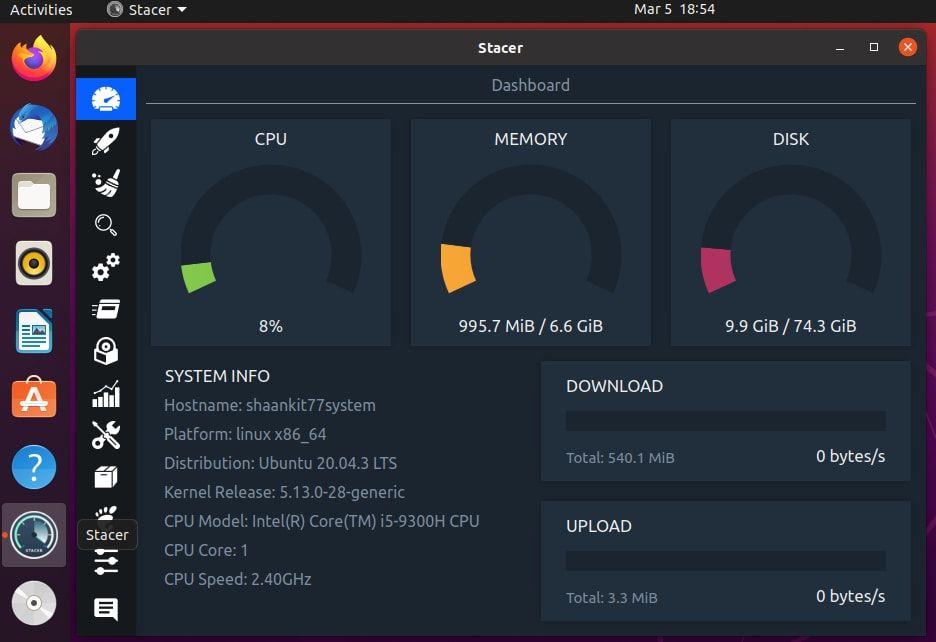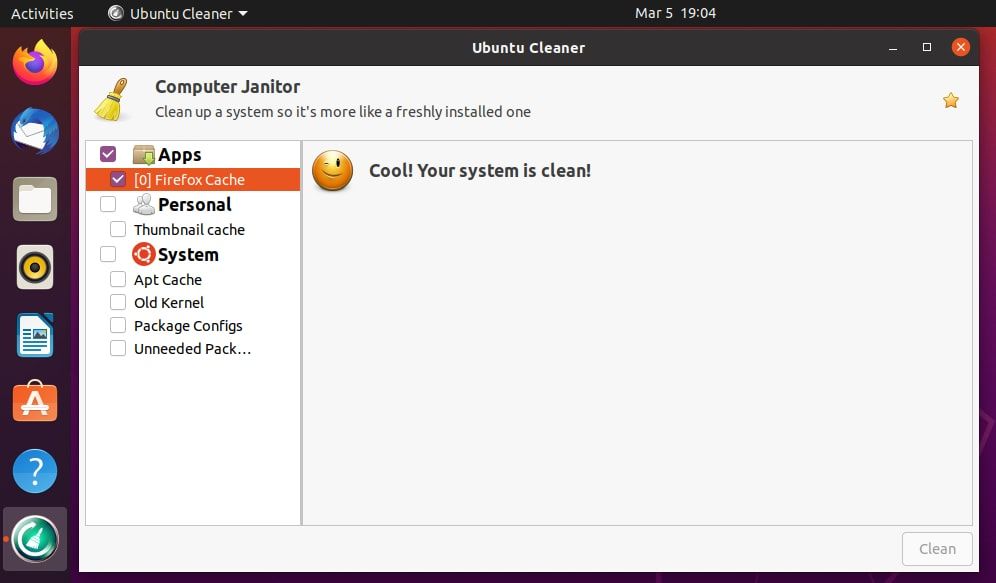Operating systems require adequate storage space to function correctly. We all think the same initially, but unnecessary files accumulate and slow down the system with time. No matter if you are a Windows or a Linux user, you should clean up the junk files taking up disk space.
There are multiple tools by which a user can free up the space of the system. However, the variety of tools makes it difficult to select the best out of them. If you also have confusion regarding the same, don't worry. This guide will help you go through the top GUI tools to free up disk space on Ubuntu.
1. BleachBit
BleachBit is an open-source storage cleaner that comes with System Optimizer and a Privacy Manager. It is licensed under a GNU General Public License, version 3. With this tool, you can delete cookies, history, temporary files, cache, logs, and much more. BleachBit also includes advanced options like disk wipes, file shredding to prevent recovery, and cleaning up Firefox to make it much faster.
It can reduce the backup file size by removing extra files to improve overall system performance. BleachBit can be a long-term solution if you want to keep your system both optimized and secured.
Basic Features:
- BleachBit can remove HTTP cookies, web cache, flash cookies, URL history from multiple browsers such as Google Chrome, Mozilla Firefox, APT, Opera, etc.
- It has a command-line interface that allows headless operation and scripting automation.
- Users don't need spyware, browser toolbars, adware, malware, or a "value-added tool."
- It increases the compression ratio of disk image backup data by wiping unallocated disk space.
- To fix bugs quickly, BleachBit provides frequent software updates.
Download: BleachBit (Free)
2. Czkawka
Czkawka is a feature-rich storage cleaner that is fast and free to use. In this tool, you can find and delete broken files, empty directories, temporary files, duplicate images, etc. The program's frontend has been written in modern GTK 3.
Czkawka is a fast tool loaded with multi-threading and advanced algorithms. The "Czkawka" is a Polish word that stands for "Hiccup." It comes with multi-platform support that means you can use it on Linux, FreeBSD, macOS, Windows, and many more.
Basic Features:
- Czkawka can remove the cache files to enhance the overall system performance.
- It doesn't ask a user for internet access permission, which means this tool will not collect any information.
- It has multi-language support, including Italian, English, and Polish.
- Czkawka has both CLI and GUI support.
Download: Czkawka (Free)
3. Sweeper
Sweeper is an open-source storage cleaner that offers a robust graphical environment. Using this tool, users can ensure that their privacy in a shared system is protected. This GUI tool is a part of KD4 that can remove web page cookies, cache files, temporary files, and many more. Sweeper can also clean up the traces left on the system from multiple users. Sweeper's UI allows you to select specific files, folders, and information from the list for quick storage clean-up.
Basic Features:
- You can remove recent apps, recent documents, saved clipboard information, command history, and thumbnail cache.
- Sweeper also has the option to clean up cookies, web history, web cache, etc.
- It has a simple UI and selection pane for choosing the files accordingly
- The Sweeper can erase your activities on a shared computer.
Download: Sweeper (Free)
4. Stacer
Stacer is a fantastic tool that can optimize your storage by managing the different aspects of your operating system. This GUI tool is written in C++ and majorly focuses on removing unnecessary files and cache of the system.
Stacer offers complete control to the user for changing the system accordingly. From managing startup apps to cleaning up storage space, Stacer's UI allows you to do it all. This tool can meet all your requirements, although it was last updated in 2019.
Basic Features:
- You can edit the package repository with Stacer's active, inactive feature.
- There is a resource monitor window to monitor the CPU, RAM, and disk usage.
- It has the direct option to uninstall the applications immediately.
- Stacer can remove package cache, crash reports, application cache, application log, and trash files.
Download: Stacer (Free)
5. Ubuntu Cleaner
As the name defines, Ubuntu Cleaner is a GUI tool that can free up your storage and make your system much more optimized. This tool is specifically developed for Ubuntu, the most used Linux Distro.
It's a fact that Ubuntu Cleaner doesn't get regular updates as it is a well-optimized tool. However, the developers of this tool take the issues seriously and update the system as soon as they receive any issues. Furthermore, it gets an update with every new Ubuntu version.
Basic Features:
- With Ubuntu Cleaner, you can remove old installers and kernels.
- This tool can maintain security by removing privacy-related files.
- It can clear different cache files, including thumbnail cache, browser cache, and APT cache.
- Ubuntu Cleaner can also remove the unused packages from the system.
Download: Ubuntu Cleaner (Free)
Try Cleaning Through the Command Line
If you don't want to use the GUI tools and use the command line only, don't worry because there are a few commands. However, these commands are not as effective as the above GUI tools, so make sure you use them accordingly. The auto-remove command removes the system's useless packages and old Linux kernels. You can use the following command in the terminal:
sudo apt-get autoremove
You can also use the autoclean and clean commands to remove the outdated packages and apt-cache files. Here are the basic commands which you can use:
sudo apt-get autoclean
sudo apt-get clean
Keep Plenty of Disk Space Free on Ubuntu
Keeping your system up to date is always essential, and it requires regular disk cleanups. However, it is hard to maintain disk storage as the system auto-generates temporary files and saves old packages. That's why it is good to use tools that can free up space and make your system much more optimized. These tools should help you clean up disk space and improve the performance of your operating system.

